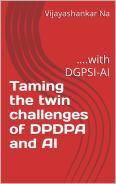One of the aspects of the Arbitration Amendment Act 2015 is on the reference to the “Regime For Costs” under Section 31A of the amended Act.
Some of the Judicial professionals have not been happy with the “Model Fee” as suggested in the fourth schedule which is reproduced here below.
THE Fourth SCHEDULE (See sections 11(14))
| Sum in Dispute | Model Fee |
| Up to Rs. 5,00,000 | Rs. 45,000 |
| Above Rs. 5,00,000 and up to Rs. 20,00,000 | Rs. 45,000 plus 3.5 per cent. of the claim amount over and above Rs. 5,00,000 |
| Above Rs. 20,00,000 and up to Rs. 1,00,00,000 | Rs. 97,500 plus 3 per cent. of the claim amount over and above Rs. 20,00,000 |
| Above Rs. 1,00,00,000 and up to Rs. 10,00,00,000 | Rs. 3,37,500 plus 1 per cent. of the claim amount over and above Rs. 1,00,00,000 |
| Above Rs. 10,00,00,000 and up to Rs. 20,00,00,000 | Rs. 12,37,500 plus 0.75 per cent. of the claim amount over and above Rs. 1,00,00,000 |
| Above Rs. 20,00,00,000 | Rs. 19,87,500 plus 0. 5 per cent. of the claim amount over and above Rs. 20,00,00,000 with a ceiling of Rs. 30,00,000 |
Note:—
In the event, the arbitral tribunal is a sole arbitrator, he shall be entitled to an additional amount of twenty-five per cent on the fee payable as per the table set out above
The above is a “Model” fee structure and the High Court may modify it to the extent required as indicated in the section as under:
(14) For the purpose of determination of the fees of the arbitral tribunal and the manner of its payment to the arbitral tribunal, the High Court may frame such rules as may be necessary, after taking into consideration the rates specified in the Fourth Schedule.
Explanation.—For the removal of doubts, it is hereby clarified that this sub-section shall not apply to international commercial arbitration and in arbitrations (other than international commercial arbitration) in case where parties have agreed for determination of fees as per the rules of an arbitral institution.’’
However, it can be implied that without a specific enhancement granted by the Court, the schedule fee may be considered as the “Upper Limit” of what the law considers as “Reasonable”.
We may also note that the schedule mentions that if the Arbitral Tribunal is a sole arbitrator, he shall be entitled to an additional 25% of fees. This confirms that what the schedule represents is the total fees that has to be shared by all the members of the Arbitration Panel.
Some of the major Arbitral Instutions in India used to specify a schedule of fees in their rules and indicate that the scheduled fees would be applicable to each of the members of the Arbitration Panel. This used to discourage the parties in going for multi member Arbitration Panel which is good to enhance the credibility of the Panel. Now that the schedule mentions that the fees mentioned in the schedule is for the total panel, it actually encourages setting up of a multi member panel for all arbitrations.
However, if any Arbitrator or an Arbitration panel decides to charge a fee lower than what is specified, there is no reason for any Court to object.
One should appreciate that today there may be some lawyers who charge lacks of rupees as fee for their appearance but Judges do function under a fixed salary basis. But the salary regime does not incentivise quick disposal of cases and few judges who quickly dispose off cases are actually frowned upon. The Arbitration fee regime is however based on “Per Case” basis and if an arbitrator can handle multiple cases, he will make reasonable money as compared to a Judge. In case of small ticket arbitrations where the fee may be low, the arbitrator has to complete the arbitration in one or two sittings or without any oral hearing so that his remuneration would more than compensate for the time, effort and expertise he brings into the proceedings.
It may also be noted that the amended act provides that Arbitrations should be completed within 1 year unless an extension is agreed upon by the parties (upto 6 m0nths) or granted by a Court and if an arbitrator completes an arbitration within 6 months, he can claim an additional fee with the consent of the parties at the time of appointment.
Another interesting aspect of the Amendement is that if a Court is extending the time allocated for an Arbitration and the reasons for the delay is attributable to the Arbitrator/Panel of Arbitrators, the Court may reduce the remuneration by 5%.
Thus the Act now incorporates a fixed time for completion of arbitration and a possible incentive for early completion and a possible disincentive for delays caused by the Panel. This is superimposed with a model fee structure which could define an upper limit for the fees.
These measures have not been to the liking of some of the Arbitrators who are presently active but are considered as a “Consumer Friendly” move of the Government and reasonable in the context of reducing the cost of dispute resolution in general.
The business community should welcome these moves.
Naavi









